Marshal Berthier. Outstanding staff officer who did not want to be a commander
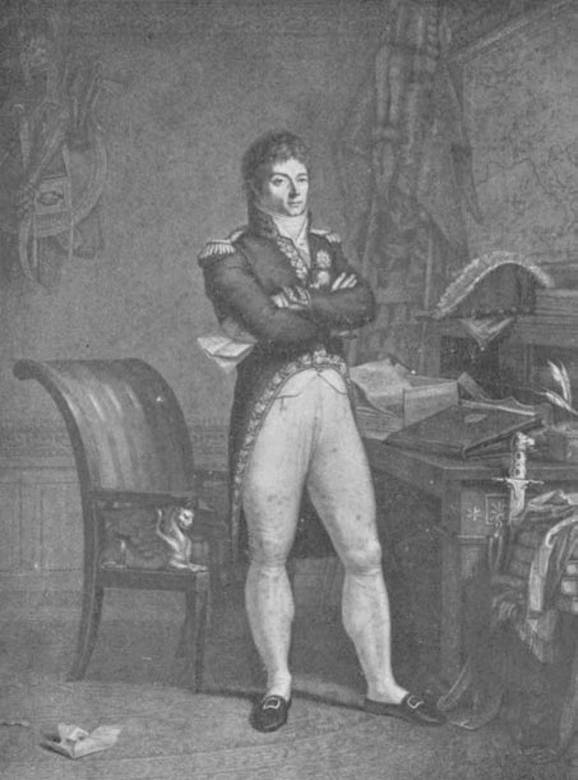
Marshal Berthier, engraving after a painting by Page the Younger
Louis-Alexander Berthier is an unusual and extraordinary figure among Napoleonic marshals. He was not a commander in the generally accepted sense of the word, moreover, he never aspired to be one. Napoleon said about him on Saint Helena:
At the same time, many of Bonaparte's victories, perhaps, would not have taken place, or were not so large and bright, if it were not for the huge, though not too noticeable from the outside, the work of Berthier. At the same time, Bonaparte himself did not like hints of his dependence on the chief of staff. He once told his secretary Burienne:
To Berthier himself, as they say, Napoleon said in 1812 before leaving the army:
Bonaparte's words are also known:
British historian Chandler agrees with him, who called Berthier “heroic chief clerk».
Napoleon himself, in moments of irritation, spoke of his chief of staff:
However, on Saint Helena, Napoleon, speaking of himself and Berthier in the third person, said:
It is not surprising that in the list of marshals of 1804 we see the name Berthier in the first place.
The origin and early life of the future marshal
Berthier was not a hereditary aristocrat, like Davout, but he was not from the very bottom, like Augereau. Nor was he a typical Third Estate like Mortier, Ney, Soult, Suchet or Victor. Berthier's grandfather was a coachman, but his father became a nobleman. Here, as they say, there would be no happiness, but misfortune helped. Jean Berthier drew attention to himself for his courage and discipline during the fire of the royal stable on September 13, 1751. Having started serving under Louis XV, he retired with the rank of lieutenant colonel under his grandson and successor, Louis XVI. At the same time, he held a rather significant position - chief engineer-geographer of field camps and armies. In addition, Berthier headed the construction of a military school, where Napoleon and Davout later studied, the military and naval ministries, the foreign ministry and some other buildings. In the meantime, he made plans for the royal hunting grounds ("The King's Hunting Cards") and therefore visited the royal court. And his son, the hero of today's article, was born in Versailles. It happened on November 20, 1753, that is, Berthier was older than even Lefebvre, Augereau and Massena - the oldest of those Bonaparte marshals who continued to fight after receiving this rank.
It is curious, by the way, that two younger brothers of Alexander Berthier (Louis Cesar Gabriel and Victor Leopold) also went along the military line and both became divisional generals. However, they did not even dream of the position achieved by Louis-Alexander.
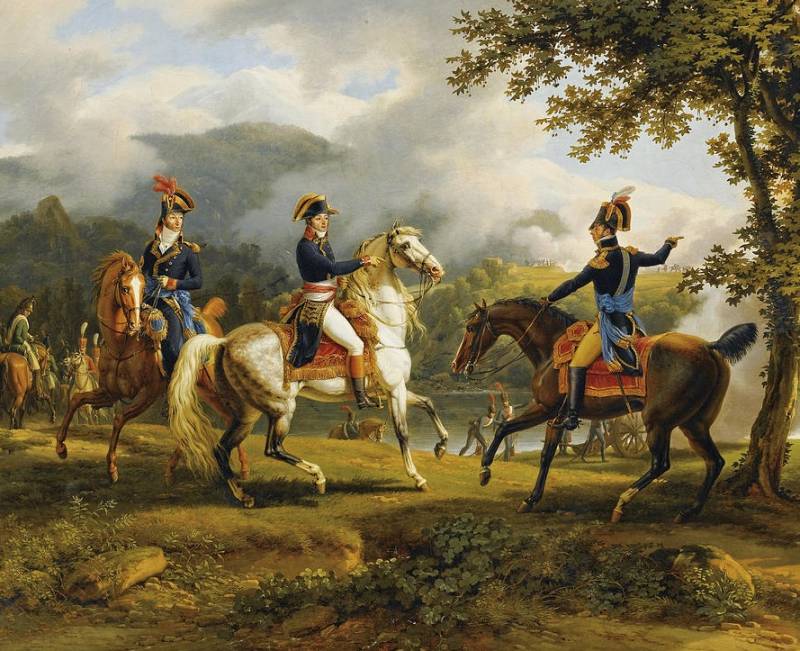
Louis-Francois Lejeune. General Berthier and his brothers, Generals Louis-Cesar-Gabriel and Victor-Leopold during the II Italian campaign
Louis-Cesar in the battle of Marengo was Murat's adjutant, in September 1802 he became a brigadier general, in 1805 he commanded the Observation Army in Holland, in 1806 he received the rank of divisional general.
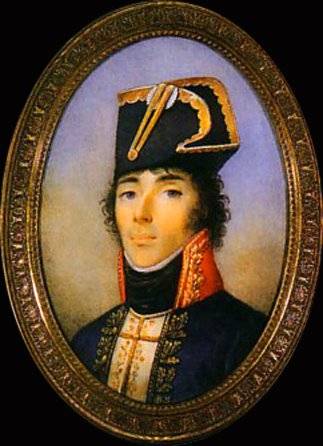
Louis Cesar Berthier
In 1807, he conquered Corfu and announced the annexation of the Ionian Islands to France. For some time he was the governor of Piedmont. In 1814 he went over to the side of the Bourbons. In 1819, Louis-César Berthier drowned in a pond at the Grobois estate.
Victor-Leopold Berthier was the youngest of the brothers, and died before anyone else.
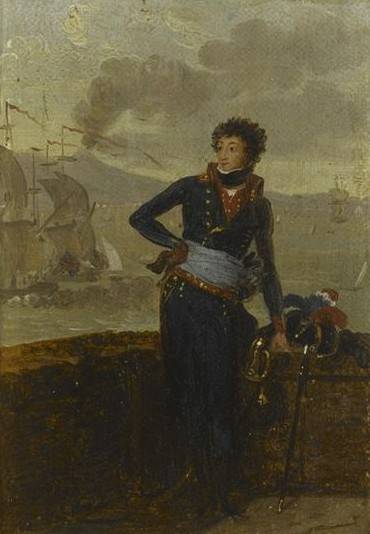
Louis Gofier. Victor-Leopold Berthier
He began serving in the royal army in 1781. In May 1791, Captain Victor-Leopold became General Adam Custine's adjutant. In 1793-1795. fought in the Vendée. In May 1796, we see him as a battalion commander in the Italian Army of the French Republic. In September 1797 he was already a brigade commander. In the future, almost all of his service, like that of his famous brother, was associated precisely with staff work. In December 1798 we see him as Chief of Staff of the 1st Infantry Division of the Roman Army of Massena. Then he headed the headquarters of the Neapolitan army. After the Battle of Trebbia, he was promoted to brigadier general. Then he served as chief of staff of various military districts. In May 1803 he was transferred to the same position in the Hanoverian army, which was commanded by Mortier.
The rank of divisional general Victor-Leopold received on February 1, 1805, and on August 29 he was sent to the headquarters of the I corps of Marshal Bernadotte. He took part in the battles at Austerlitz, Halle and Lubeck. After the defeat of Prussia, he was appointed ambassador to Berlin, but fell ill and retired on November 30, 1806. On March 21, 1807, at the age of 36, Victor-Leopold Berthier died in Paris from some kind of "malignant fever."
But back to the life and fate of Marshal Berthier. The appearance of this man was unprepossessing and absolutely unheroic. Berthier was disproportionately built: the head seemed very large for his height, the body was full, the arms were too long, the legs were short. The picture was completed by a shock of coarse hair of an indeterminate color.
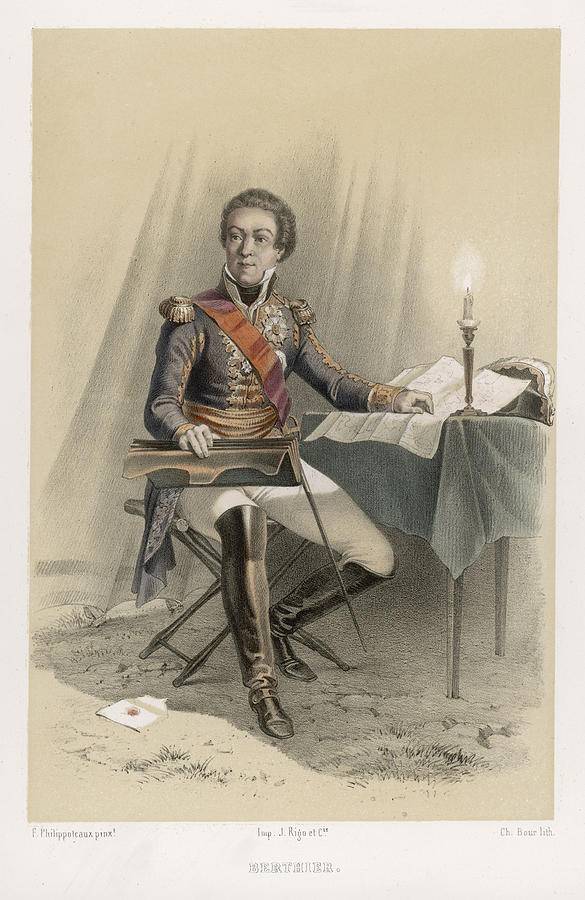
In addition, he had a bad habit of biting his nails, and their appearance caused a feeling of disgust in many.
Berthier tried to compensate for the shortcomings of appearance with the elegance of his clothes. Later, already in the Napoleonic army, he was considered a trendsetter in military fashion. Even the famous dandies Murat and Lann jealously watched how he dressed. At the same time, everyone was amazed by the physical endurance and incredible work capacity of this unsightly mod. He could equally easily endure the enormous loads of long transitions and many hours of sedentary work with documents.
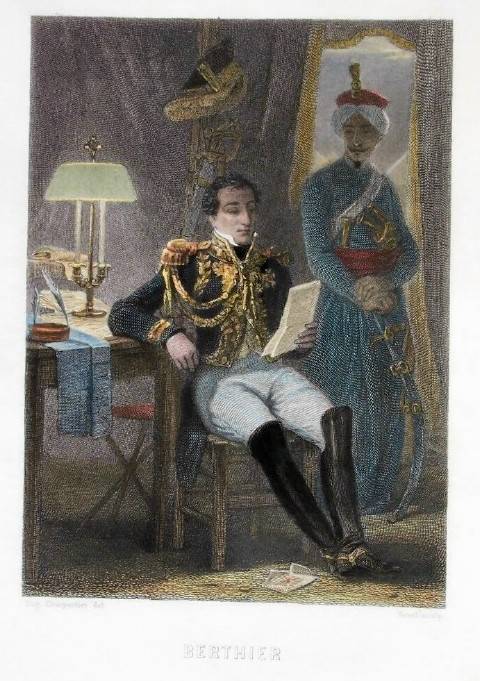
J. Rickard. Marshal berthier at work
General Anne-Pierre de Montesquieu-Fesensac wrote about him:
Quartermaster General Daru also recalled the physical endurance of Berthier:
Napoleon, by the way, believed that endurance is more important than courage. He said:
Becoming Napoleon's chief of staff, Berthier traveled with him in the same carriage: together they traveled thousands of miles. But, if the chair of the emperor, through simple manipulations, turned into a bed, then his companion even had to sleep while sitting. Berthier could withstand such inconveniences without complaint.
The beginning of the service of Alexander Berthier
Alexander Berthier distinguished himself from many other marshals of Bonaparte in the education he received. At the age of 11, he entered the school of military engineers, from which he graduated at the age of 13. From that time on, he worked fully under the guidance of his father and even ruled the drafts of maps compiled by Louis XVI (this king was a lover of geography and topography). Berthier began his military service at a later age than most other Napoleonic marshals. It happened in 1775, when the 22-year-old Alexander entered the Lorraine Cavalry Regiment. And then he and his brother Charles ended up in the rebellious North American colonies of Great Britain.
Berthier in America
As a result of the Seven Years War, France lost its colonies in North America. But this victory was fatal for Great Britain. Earlier, the English colonists, who were under constant pressure from the French and their allied Indian tribes, were forced to seek help from the mother country. In these conditions, the idea of independence did not even occur to anyone. Now that the military threat from the north had disappeared, the inhabitants of these colonies decided that Mother Britain was asking too much of them and giving too little. And they started a war to create their own state. France, which was just waiting for an opportunity to take revenge on the hated British, happily supported its recent enemies. At first, the French helped the rebels secretly - with money, weapons and ammunition, and Pierre-Augustin Caron, better known as Beaumarchais, played an important role in the supply.
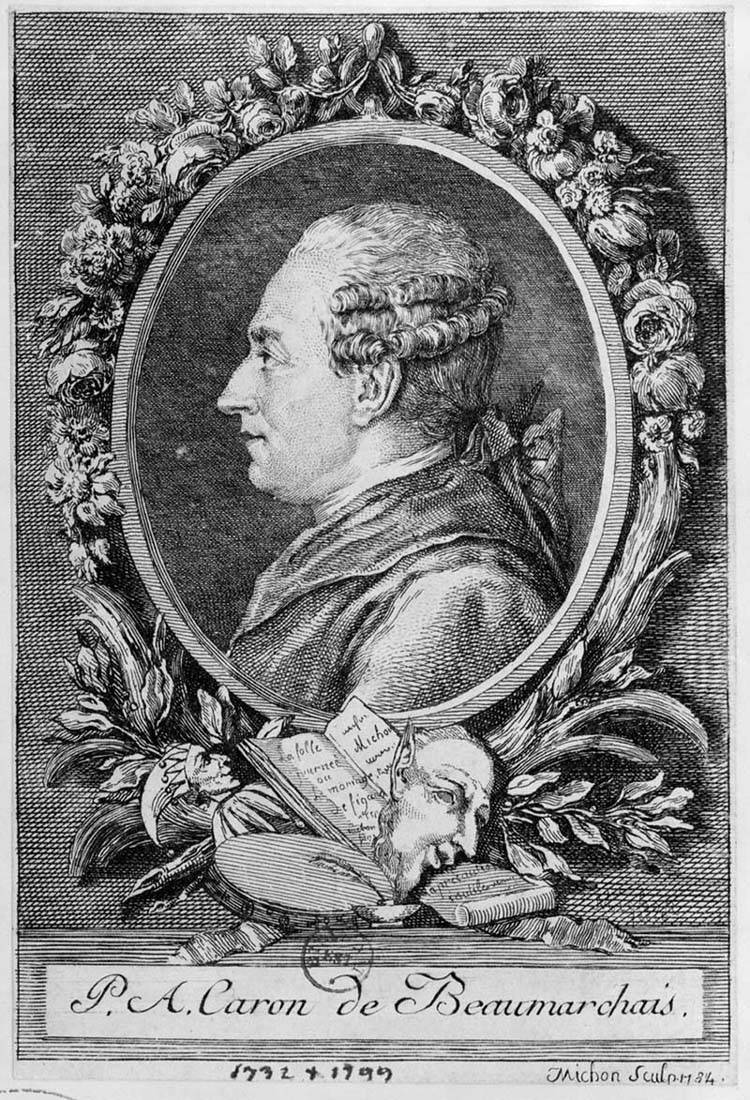
This multi-talented man acted through a specially created company "Rodrigo Gortales & Co", which owned 11 ships (the 50-gun frigate "Proud Rodrigo" and 10 merchant ships). The initial authorized capital consisted of a million livres received from the French treasury, a million from the Spanish government and a million from French bankers hoping to get good profits from the return deliveries of American goods, primarily tobacco and cotton. Karon himself invested almost all of his funds in this company, and even got into debt. His company operated on a grand scale. The amount of weapons and ammunition delivered to America turned out to be enough for a full-fledged armament of a 30-thousandth army. And 80% of the gunpowder of the colonists was of French origin. Instead of paying, US congressmen expressed to Karon “official thanks for his efforts in helping the rebellious colonies».
In total, from 1776 to 1783 Caron's company delivered goods worth 21 million livres to America, and received as much as 48 thousand livres from the colonists. And also - "American securities" (their "value" then did not greatly exceed the cost of the paper on which they were printed) by 2,5 million livres, which were payable after 3 years. As a result, the ungrateful Americans only personally owed the playwright as much as 5 million livres. Only part of this debt was paid to his heirs in the middle of the XNUMXth century.
In 1777, Marie Joseph Yves Roque Gilbert Du Mautier, Marquis de Lafayette, went to America (disguised as a woman!) To fulfill her "international duty". Here he received the rank of Major General, became a military adviser and Washington's closest aide.
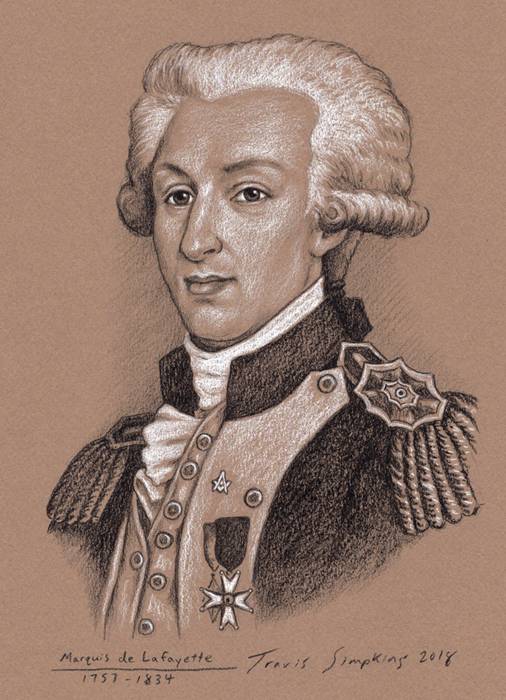
Travis Simpkins. Marquis de lafayette
Formally, Lafayette was on leave "for health reasons" all this time. However, he acted with the knowledge of the French authorities, and many researchers believe that - on the direct orders of his government.
On February 6, 1778, the cabinet of Louis XVI officially recognized the United States, and on March 17, 1778, Britain declared war on France. Finally, in May 1780, the 6th French corps landed in Newport under the command of Count Jean-Baptiste Rochambeau.
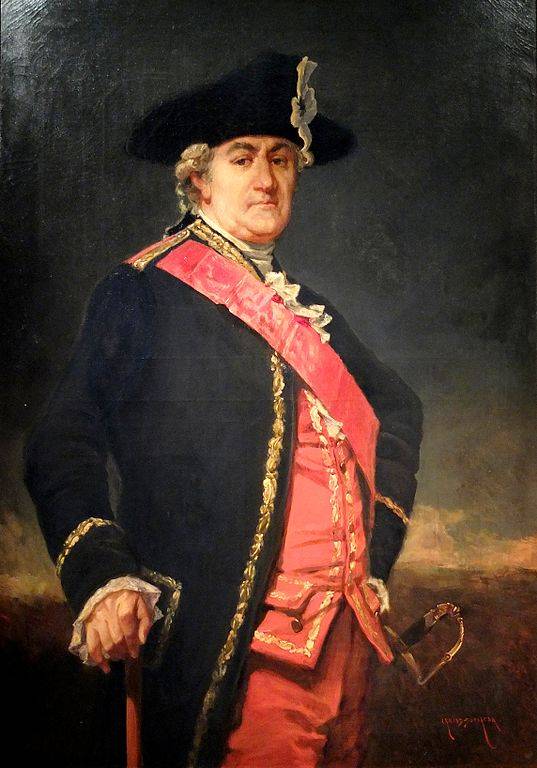
Charles Edouard Armand-Dumaresque. Portrait of the Comte de Rochambeau
The count did not even suspect that among his subordinates there would be two future marshals of France. The first of them was Private Jourdan.
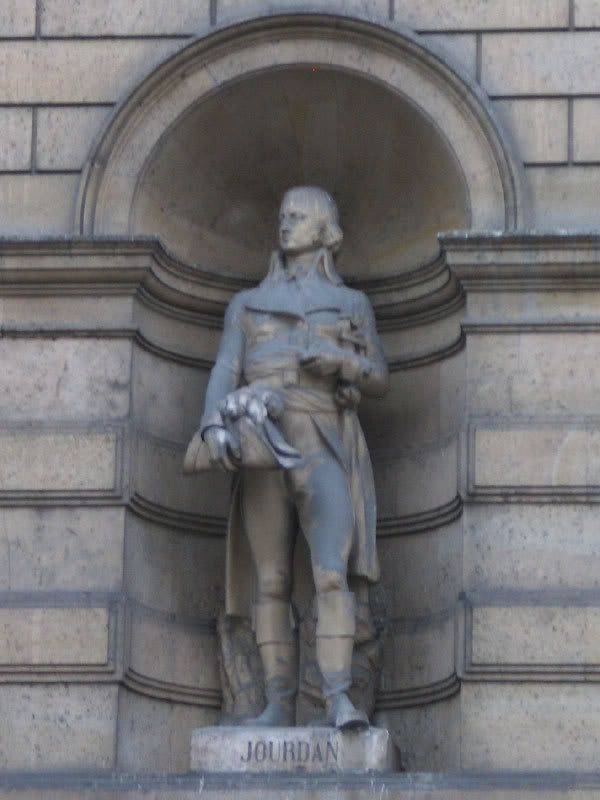
Jean-Baptiste Jourdan, statue on rue de Rivoli, facade of the Louvre
And in September 1780, the second arrived in America - Lieutenant Alexander Berthier (when the main corps sailed, he was a little late, seeing in Brest only the sails of the ships that had already departed at sea). Berthier ended up serving in the headquarters of the commander-in-chief. Then he met Lafayette.
In America, Berthier took part in some battles (the battle of Yorktown, the sea battle at Cisapeake, the expedition to Jamaica). On June 21, 1781, during a battle in the area of modern Harlem (New York), he was even slightly wounded - a bullet scratched his ear.
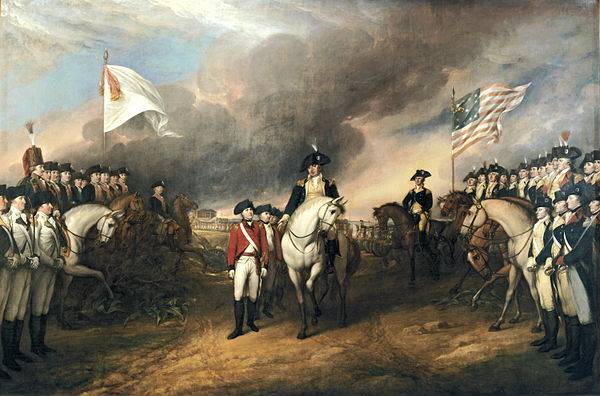
In a painting by John Trumbull, Lord Cornwallis' army at Yorktown surrenders to French and American forces (French left)
The French then managed to "annoy" the British. However, this geopolitical victory turned out to be fatal for ... France. The state treasury of this country was already empty, and now, thanks to “international aid to the brotherly American people”, The budget deficit has reached an absolutely indecent figure of one billion livres. France was sliding into a financial abyss, the crisis was so massive that they decided to rob the people a little by raising taxes. To do this, we had to collect the General States - and then, you know, off we go. In general, as they say, "do not dig a hole for another."
On the eve of the revolution
But back to Alexander Berthier, who in 1783 returned to his homeland with the rank of captain. He did not stay at home for a long time: very soon, as part of the mission of the Marquis de Custine, he went to Prussia to study the experience and military organization of the army of Frederick the Great.
In 1788, Alexander Berthier took part in the construction of a military camp at Saint-Omer. Then he received the cross of the Order of St. Louis.
In 1789, Lieutenant Colonel Berthier first began working as chief of staff - first with the Prince of Condé, then with Baron Vesenval. And immediately it turned out that he was literally created for this position. His memory was phenomenal: at any moment he could report the position of all units, starting from the company.
It is not surprising that later Bonaparte could not do without him. There is a known case when, to clarify various details, Napoleon called the chief of staff 17 times in one night. Berthier endured these inconveniences stoically. But before meeting Bonaparte, our hero managed to serve in the National Guard, created on the initiative of his old acquaintance, Lafayette (and find himself in disgrace after the escape of the Marquis). Make war on the territory of Vendée and in Italy. And only in 1796, 42-year-old Berthier was subordinate to the 27-year-old Corsican. The next article will talk about the revolutionary and imperial periods of Berthier's service.
Information